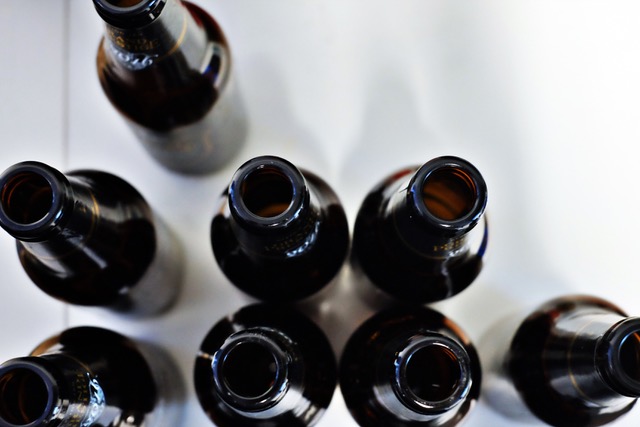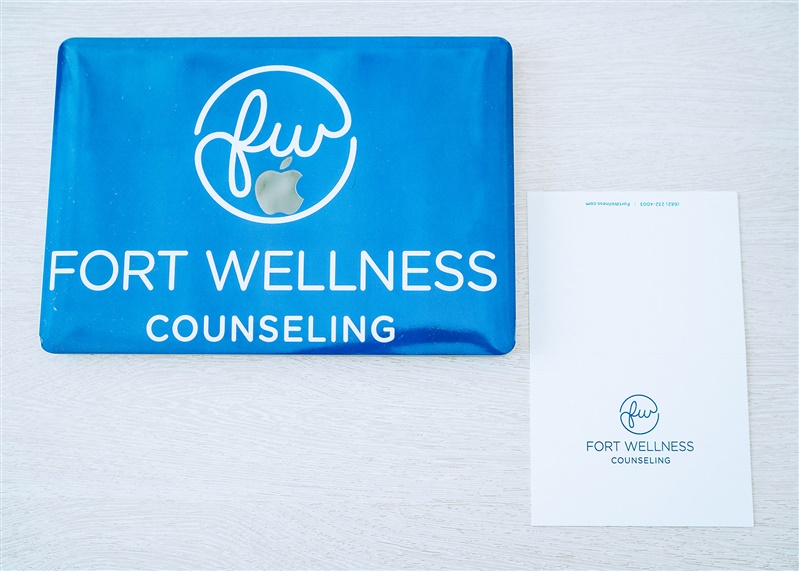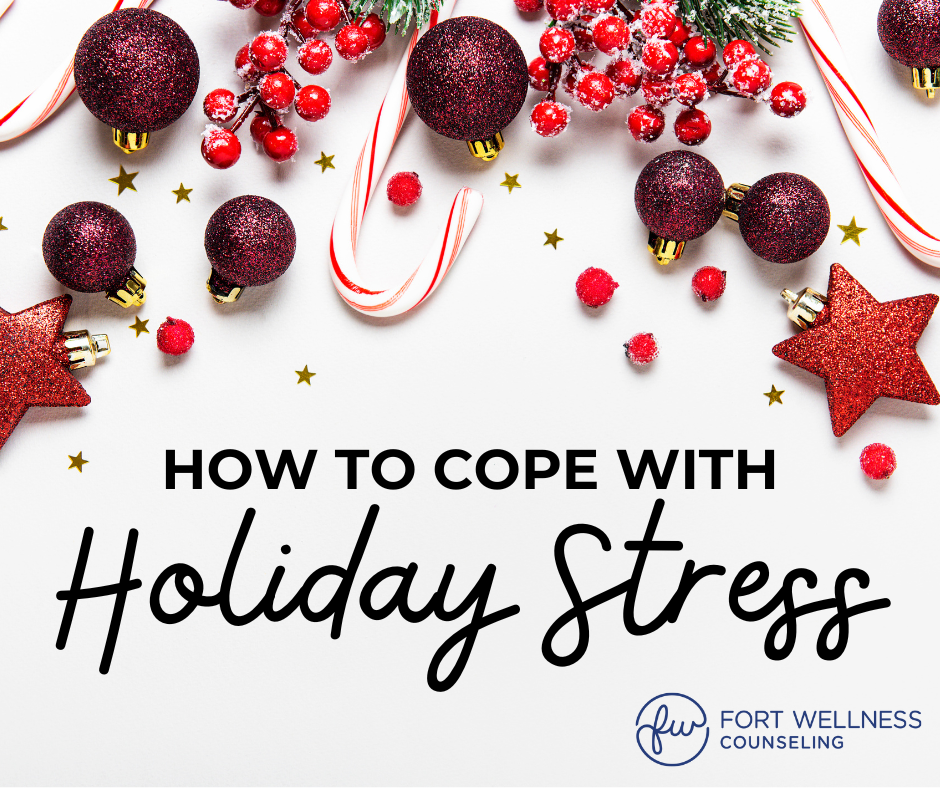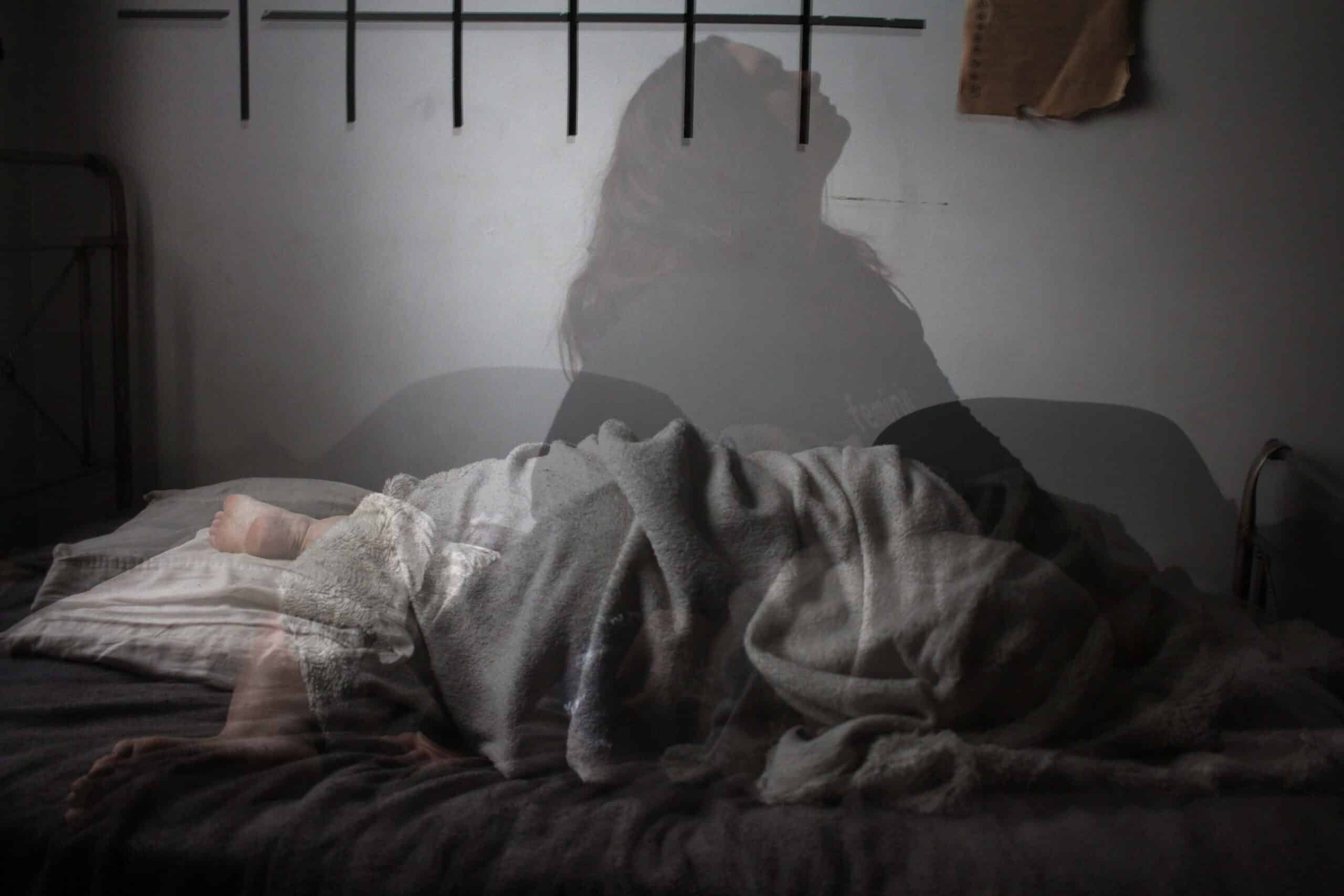
Offering Support After the Texas Hill Country Flooding
Offering Support After the Texas Hill Country Flooding By: Rane Wallace, MS, LPC, LCDC, SAP When tragedy strikes, it comes out of nowhere. And it

Be honest, what comes to mind when you think of alcoholism? Is it homelessness? Getting a DUI? Pouring shots of whiskey into your morning coffee? Besides, what are some warning signs of alcoholism and how do you know if you are an alcoholic?
While these might be true to an extent, alcoholism is an incredibly nuanced and complicated disease. Many people are quick to stereotype alcoholics. However, those stereotypes don’t always hold. Alcoholism can affect anyone, regardless of whether they have a family, live in a house, or hold down a stable job.
So, how do you know if you’re an alcoholic? Well, as a qualified Substance Abuse Professional by the Association for Addiction Professionals (NAADAC), I’m answering that question in today’s blog post. Keep reading to learn the top six warning signs of alcoholism.
Before we dive into the signs of alcoholism, what is it? According to Alcoholics Anonymous, alcoholism is “a physical compulsion, coupled with a mental obsession to consume alcohol.” Alcoholics drink beyond their control and are unable to stop voluntarily. As a result, they are often habitually intoxicated, drink daily, and consume larger quantities of alcohol than most.
While we haven’t yet found a clear cause of alcoholism (it is classified as an addiction), alcohol use disorder occurs when someone drinks so much (or so often) that they start altering the chemical makeup of their brain.
Yes! Most adults consume alcohol with friends or with dinner and have no issues. However, alcoholism extends beyond just drinking socially. Instead of drinking (mostly) responsibly and sticking to their limits, alcoholics have developed a pattern of drinking excessively and regularly. Furthermore, alcoholics will continue to drink despite any negative consequences that ensue.
There is also a huge difference between alcohol abuse and alcoholism or being dependent on alcohol. Alcoholism refers to the alcohol addiction and dependence. With these, the individual has a physical and/or psychological compulsion to drink alcohol. Alcohol abuse is defined by drinking despite negative consequences.
Wondering whether your drinking behavior classifies as alcoholism? Here are six signs of alcoholism to watch out for:
Drinking is usually a social activity. Therefore, consuming large amounts of alcohol by yourself might indicate a larger problem.
Am I talking about those days when you come home after a long day and drink a glass of wine in the bathtub…? No, I’m not. However, I am talking about the daily use of alcohol consumption as a means of escaping other mental health issues.
If you suspect that your loved one is drinking alone, you might anticipate finding a lot of empty bottles strewn around the house. However, while this is possible, most alcoholics are incredibly good at hiding it. Therefore, don’t be surprised if your loved one is denying their drinking habits.
Foregoing your responsibilities (like your job and family) to drink is another sign of alcoholism. Alcoholics spend a great deal of time partying and engaging in other alcohol-related activities, and their other commitments might fall by the wayside.
When you’re younger (in your twenties or in college, for example), alcoholism can go unnoticed due to the cultural acceptance of heavy drinking. However, it is still something to watch for. Many people can live a party lifestyle without becoming dependent on alcohol. However, that lifestyle can lead to alcoholism if they find themselves feeling uncomfortable anywhere other than at bars/parties.
Alcoholics don’t have control over their consumption. Oftentimes, when they reach a certain amount, they’re unable to stop. Alcoholics tend to act unusually or behave recklessly once intoxicated. This kind of behavior includes (but is not limited to):
One of the most tell-tale signs of alcoholism is when someone recognizes their behavior (and its consequences) yet continues to drink and not stop despite knowing that.
When a heavy drinker suddenly stops consuming alcohol, alcohol withdrawal symptoms will develop. Physically, these symptoms include:
Alcohol withdrawal is also associated with mental hardships:
If you or a loved one is going through symptoms of withdrawal, a substance abuse therapist like myself can help. If your withdrawal symptoms worsen to include fever, blackouts, hallucinations, or convulsions, you should seek emergency medical attention immediately. Withdrawing from alcohol can be very scary because it can cause seizures that can be fatal. Please go to the hospital if this is even close to being in question.
Alcohol abuse causes people to behave differently than they usually would. If someone is excessively abusing alcohol over an extended period, they might experience alcohol-induced mood swings (aka alcoholic mood swings).
Alcoholics can become incredibly irritable, angry, or violent when they are under the influence (especially when they’re confronted about their drinking). Additionally, alcoholics can become agitated, anxious, or depressed when they can’t obtain alcohol for whatever reason. While it might be hard to believe, many alcoholics feel as though they need to consume alcohol to function normally.
After you’ve made a routine of excessive drinking, your body will get used to the large amounts of alcohol that you’re intaking daily. This will result in your alcohol tolerance increasing, and you will have to consume even more alcohol to feel the same as you once did.
Some alcoholics will assume they don’t have an issue because they don’t get drunk every time they drink. However, what they don’t realize is that they’re damaging their body regardless of their feeling intoxicated.
If you’ve noticed that you’re consuming five or six shots a night and not feeling a thing, then it might be time to make an appointment with a substance abuse counselor.
I hope that today’s blog post helped you understand the warning signs of alcoholism, so you can better protect yourselves and your loved ones.
If you or someone you know is struggling with alcohol or alcoholism, or if you are wanting to learn how to help someone with a porn addiction, a professional substance abuse counselor can help. As debilitating as it is, alcoholism is not untreatable. Here at Fort Wellness Counseling, we have both the tools and the expertise to help you overcome your alcoholism and accomplish long-term change.
Freedom is just around the corner. Book your appointment today. If you need help with a particular issue, including alcoholism, we encourage you to schedule an appointment with one of our therapists today. We offer convenient appointments on the west side of Fort Worth and can also provide virtual therapy as well. A

Offering Support After the Texas Hill Country Flooding By: Rane Wallace, MS, LPC, LCDC, SAP When tragedy strikes, it comes out of nowhere. And it

Family Vacations & Your Mental Peace: Strategies for Stress-Free Summer Travel By: Rane Wallace, MS, LPC, LCDC, SAP Of course, traveling with your family is

Mental Health 101: Debunking Common Myths By: Rane Wallace, MS, LPC, LCDC, SAP Every May, Mental Health Awareness Month raises awareness and advocacy for people

Medical Trauma: Understanding and Healing from Difficult Healthcare Experiences By: Rane Wallace, MS, LPC, LCDC, SAP Over the years, I’ve come to understand that for

Social Media Depression: Beyond FOMO to Algorithm-Induced Mood Change By: Rane Wallace, MS, LPC, LCDC, SAP I’ve seen this happen so many times with patients,

How to Wind Down at Night: Simple Sleep Hygiene Tips By: Rane Wallace, MS, LPC, LCDC, SAP Sleep hygiene might sound like a fancy term,

Pregnancy and Postpartum Anxiety Treatment in Fort Worth By: Rane Wallace, MS, LPC, LCDC, SAP Have you or a loved one experienced anxiety during pregnancy

Breaking the ‘New Year, New Me’ Mindset: A Guide to Sustainable Change By: Rane Wallace, MS, LPC, LCDC, SAP In my years as a therapist,

How to Support a Partner with Chronic Illness: A Mental Health Perspective By: Rane Wallace, MS, LPC, LCDC, SAP Living with a chronic illness can

EMDR for Attachment Issues: Building Healthy Relationships By: Rane Wallace, MS, LPC, LCDC, SAP When you hear “EMDR therapy” (Eye Movement Desensitization and Reprocessing), you

How to Deal with a Narcissistic Partner By: Rane Wallace, MS, LPC, LCDC, SAP Do you ever feel like your partner thinks they’re better than

How to Recover from Burnout By: Rane Wallace, MS, LPC, LCDC, SAP Burnout is a common struggle in today’s fast-paced world. Life’s relentless demands can

The Benefits of Attending Couples Counseling By: Rane Wallace, MS, LPC, LCDC, SAP There’s a misconception about couples counseling – that it signals the end

Things to Know About Individual Counseling in Fort Worth, TX By: Rane Wallace, MS, LPC, LCDC, SAP May is Mental Health Awareness Month, a good

Everything You Need to Know About EMDR Therapy By: Rane Wallace, MS, LPC, LCDC, SAP Have you heard about EMDR therapy and want to learn

What is Nature Therapy? (And Why You Should Be Doing It!) By: Rane Wallace, MS, LPC, LCDC, SAP Let’s face it: there’s just something about

The Benefits of Virtual Therapy in Texas By: Rane Wallace, MS, LPC, LCDC, SAP Technology is changing everything, and healthcare is no different! Thanks to

How to Get Over a Breakup By: Rane Wallace, MS, LPC, LCDC, SAP Breaking up with a romantic partner is painful – no matter the reason

How to Set New Year’s Resolutions By: Rane Wallace, MS, LPC, LCDC, SAP How to Set New Year’s Resolutions Setting goals gives us a sense

How to Cope with Holiday Stress By: Rane Wallace, MS, LPC, LCDC, SAP Say No to Prevent Burnout There are an abundance of obligations that

Trauma Therapy in Fort Worth: Types, Benefits & More By: Rane Wallace, MS, LPC, LCDC, SAP Believe it or not, an estimated 60% of men

How to Communicate Better in Relationships By: Rane Wallace, MS, LPC, LCDC, SAP Whether with coworkers or your significant other, the ability to communicate effectively

How to Prevent Seasonal Affective Disorder (SAD) By: Rane Wallace, MS, LPC, LCDC, SAP If you’re struggling with winter blues, know you’re not alone. SAD

What is a Functioning Alcoholic? By: Rane Wallace, MS, LPC, LCDC, SAP When someone is deemed a ‘high-functioning alcoholic,’ they’re able to carry out daily

How to Help Yourself – And Others – with Suicidal Ideation By: Rane Wallace, MS, LPC, LCDC, SAP September is Suicide Awareness Month. And while

32 Questions to Strengthen Your Relationship By: Rane Wallace, MS, LPC, LCDC, SAP When was the last time you had a meaningful conversation with your

The Fawn Response: How Trauma Can Lead to People Pleasing By: Rane Wallace, MS, LPC, LCDC, SAP Do you often find yourself putting the needs

How to Overcome ‘Hangxiety’ (Post-Drinking Anxiety) By: Rane Wallace, MS, LPC, LCDC, SAP Thought the consequences of drinking heavily were merely physical? Unfortunately, you’ll have

What is Box Breathing? Plus Tips for Beginners By: Rane Wallace, MS, LPC, LCDC, SAP Ever heard of box breathing? This popular relaxation technique involves

Do Mindfulness Exercises for Anxiety Work? By: Rane Wallace, MS, LPC, LCDC, SAP Do mindfulness exercises for anxiety work? If you (or people in your

What is Trauma Bonding? 4 Warning Signs By: Rane Wallace, MS, LPC, LCDC, SAP If you’ve ever been in an abusive relationship and felt bonded

Why Do We Cry? 4 Reasons and Crying Benefits By: Rane Wallace, MS, LPC, LCDC, SAP There’s no getting around it – crying is part

What Is Habit Stacking? (And How to Do It) By: Rane Wallace, MS, LPC, LCDC, SAP Supporting our mental health is one of those goals

5 Tips for Living with Someone with OCD By: Rane Wallace, MS, LPC, LCDC, SAP While living with OCD (obsessive-compulsive disorder) can be demanding, living

What is Assertive Communication? By: Rane Wallace, MS, LPC, LCDC, SAP So, what is assertive communication? Well, in a nutshell, this communication style aims to

PTSD Counseling in Fort Worth: Proven Coping Strategies By: Rane Wallace, MS, LPC, LCDC, SAP For those who didn’t already know, post-traumatic stress disorder (PTSD)

Brainspotting vs. EMDR: What’s the Difference? By: Rane Wallace, MS, LPC, LCDC, SAP According to the National Council for Mental Wellbeing, 70% of American adults

Mindfulness Exercises to Strengthen Your Recovery By: Rane Wallace, MS, LPC, LCDC, SAP Are you recovering from alcohol and/or substance abuse? Self-improvement is a life-long

How to Find a Counselor in Fort Worth By: Rane Wallace, MS, LPC, LCDC, SAP Are you considering therapy? If so, finding a counselor in

How To Not Be Codependent In A Relationship By: Rane Wallace, MS, LPC, LCDC, SAP Wondering how to not be codependent in a relationship? Sometimes

What is Parental Anxiety? Coping Tips from a Therapist By: Rane Wallace, MS, LPC, LCDC, SAP Every parent wants to shield their child from danger

What is EMDR Therapy? By: Rane Wallace, MS, LPC, LCDC, SAP Ever heard of eye movement desensitization and reprocessing therapy? More commonly known as EMDR,

8 Proven Tips to Sleep Better at Night (and Improve Your Mental Health) By: Rane Wallace, MS, LPC, LCDC, SAP Struggling with restless nights and

How to Have a Healthy Relationship with Social Media By: Rane Wallace, MS, LPC, LCDC, SAP In today’s world, there’s no escaping the presence of

What Is The Goal of Psychotherapy? By: Rane Wallace, MS, LPC, LCDC, SAP Have you been considering psychotherapy? The start of a new year is